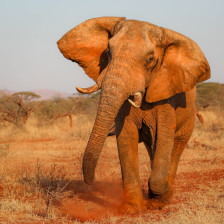dlib C++ library 
Dlib is a modern C++ toolkit containing machine learning algorithms and tools for creating complex software in C++ to solve real world problems. See http://dlib.net for the main project documentation and API reference.
Compiling dlib C++ example programs
Go into the examples folder and type:
mkdir build; cd build; cmake .. ; cmake --build .
That will build all the examples. If you have a CPU that supports AVX instructions then turn them on like this:
mkdir build; cd build; cmake .. -DUSE_AVX_INSTRUCTIONS=1; cmake --build .
Doing so will make some things run faster.
Finally, Visual Studio users should usually do everything in 64bit mode. By default Visual Studio is 32bit, both in its outputs and its own execution, so you have to explicitly tell it to use 64bits. Since it's not the 1990s anymore you probably want to use 64bits. Do that with a cmake invocation like this:
cmake .. -G "Visual Studio 14 2015 Win64" -T host=x64
Compiling your own C++ programs that use dlib
The examples folder has a CMake tutorial that tells you what to do. There are also additional instructions on the dlib web site.
Alternatively, if you are using the vcpkg dependency manager you can download and install dlib with CMake integration in a single command:
vcpkg install dlib
Compiling dlib Python API
Before you can run the Python example programs you must compile dlib. Type:
python setup.py install
Running the unit test suite
Type the following to compile and run the dlib unit test suite:
cd dlib/test
mkdir build
cd build
cmake ..
cmake --build . --config Release
./dtest --runall
Note that on windows your compiler might put the test executable in a subfolder called Release. If that's the case then you have to go to that folder before running the test.
This library is licensed under the Boost Software License, which can be found in dlib/LICENSE.txt. The long and short of the license is that you can use dlib however you like, even in closed source commercial software.
dlib sponsors
This research is based in part upon work supported by the Office of the Director of National Intelligence (ODNI), Intelligence Advanced Research Projects Activity (IARPA) under contract number 2014-14071600010. The views and conclusions contained herein are those of the authors and should not be interpreted as necessarily representing the official policies or endorsements, either expressed or implied, of ODNI, IARPA, or the U.S. Government.
